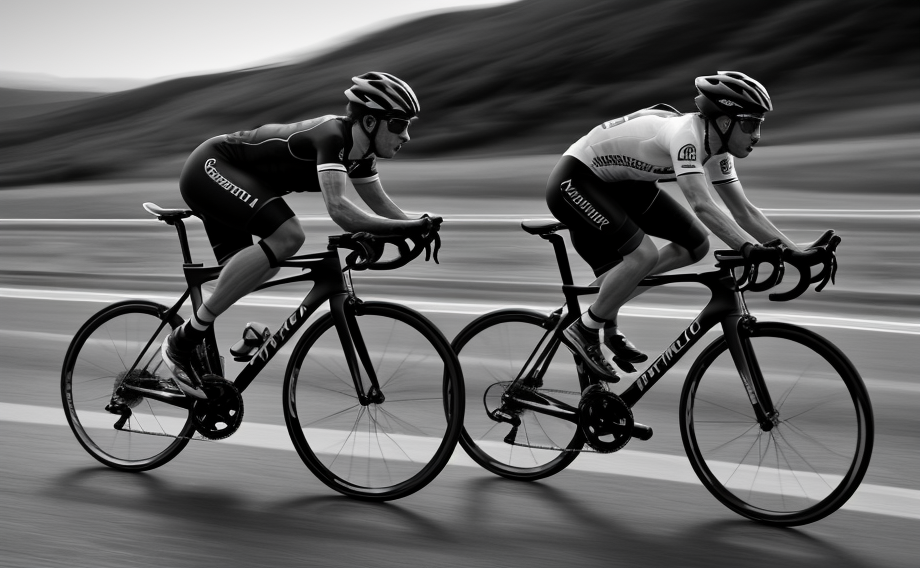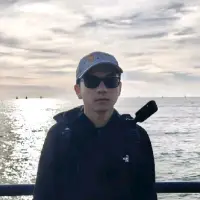Why Accomplishment Deceits Me — And The Fallacy Of Realized Gains

Whenever I accomplish something, I only regret I hadn’t done it sooner. But maybe that’s not as easy as I think. Maybe it was never even possible.
Too Late
The idea of timeliness is an egregious obstacle to my confidence. It’s this notion I’ve had that the significance of one’s accomplishments is eroded by the time or period it was achieved.
Words like “prodigy” and “genius” were commonplace in describing this phenomenon. “Smart” -ness and “natural talent.” If I started an endeavor at an extremely young age, it would’ve been “impressive,” because it was a rarity.
But if I did the same thing later in life… who would care? You’re supposed to be able to do stuff at that age. If I hadn’t, then I was just a failure who didn’t try hard enough.
Or maybe I was just intellectually deficient as a result of the genetic lottery — subhuman by nature.
I always fell into the trap of comparison. I tried for years but got stuck for what felt like an eternity. This continued to validate the idea I was fundamentally incapable.
The past few years have been the most difficult periods to progress in anything. I started many new endeavors 7 years ago. Yet in the last 3 or so, it felt like no matter how hard I tried, I was going nowhere.
I failed to conjure words in fiction. My mixes sounded terrible to me. And I got stuck after a few paragraphs writing these very pieces. Meanwhile, I read about the thousands of words real writers wrote effortlessly.
Before I knew it, the primetime of adolescence was over. It was too late to be impressive anymore.
What the hell was wrong with me?
Recently, I’ve realized something — I’ve made progress again. I’ve written three lengthy works in a week, this one being the fourth.
I’m in that state of flow now, plastering words on the screen in droves. And they’re words I’m satisfied with too. There’s no mental blockage, I just keep going.
It’s amazing to feel, though I’m not sure how long it’ll last. I’ve crashed and burned too many times before.
I tried making another composition. I realized the muffled feeling wasn’t as bad. There were some issues, but it was better than before. I’d progressed, after years of feeling I was at a dead end.
After a year of nothingness in development, I finished an app prototype in three weeks. It’s almost impossible to believe, seeing how last year went.
But, wait a second. That was a lie.
Time Framed
Time was the dictator of accomplishment. The older I got, the more it paled compared to what could’ve been done when I was 5 years younger. Similarly, the longer something took, the less impressive it was.
Because obviously, I could build a worthwhile project in X amount of years. “Who gives a crap… it’s expected.”
Starting and finishing a project in a single weekend — now that was something to behold. It’s unique and remarkable, it sounds like it stands out. And so I was obsessed with the idea.
Yet when I write a piece or develop a program, and I finally make that breakthrough — in remarkable time I never expected, rather than pride, I often think to myself… that’s it?
That was all I freakin’ had to do?
“I could’ve done this 3 years ago. I could’ve finished the entire thing in 2 days.
Curse my life to hell, I wasted so much time. I’ll never get that back, and now it’s too late.”
But is that really the case?
On my app project, I spent 3 weeks creating the user interface, developing a backend, *insert techy jargon buzzwords that sound smart when I’m actually depressed inside* — all of which eventually culminated in a finished, working… slightly shoddy, prototype.
However, this didn’t occur in isolation. Because just over one year ago, I knew nothing about the tools I used in that period. I was a broken college graduate, dehumanized, done with the world and life after 9 months of hopeless hell.
I was lost with no idea where to go when all doors were shut. Everything was telling me I was inherently worthless, and to go die. But then I connected with a nonprofit, volunteering within an environment of appreciation and cultivation.
It was one where I was allowed to learn and contribute, rather than pummeled into the ground with notions of perpetual inferiority — that I would never be capable of progress. And for that, I’m grateful.
In a year, I’ve gotten quite acclimated to web technologies I’d never used before, such as Django and Google Cloud Platform. I’ve delved into training AI/computer vision models — which sounded uber convoluted, but was so simple in practice, due to the tools that made it so.
And I’m now even heading development for one of the organization’s projects — building it from scratch on my own.
Everything felt so simple in hindsight. The fear mongering and gotchas were complete bogus.
To say I finished my prototype in 3 weeks isn’t true. The year of learning necessary to transfer to my own project is excluded, as is the year of mental healing I did through writing.
To efficiently do calculations with geographic coordinates on the globe, I used a similar method I encountered in a college course.
Some checks are pointless, as a location in China will never be within 100 meters of a location in the U.S. I quickly eliminate unnecessary information by dividing the world into blocks and only math-ing on data within them.
To say my prototype came together in 1 year isn’t true either. It excludes the prior three years needed to discover these ideas. I was only aware of the solution because I was introduced to it then.
I spent years trying in facets of game development. I started with embarrassingly cringeworthy ideas and execution. I didn’t know how to start. Over time, I went through a journey of extreme highs and lows, but improving somewhat.
Then I hit a brick wall. I realized I wasn’t progressing. I felt tortured by every aspect of the process. And after a whole year of blockage, I stopped trying on my project.
In that period after quitting, plus the experiences in the prior year, I thought of another idea for a mobile app, where I could still take the knowledge I gained from my previous projects.
I’d launch quickly and iterate with tiny changes over time, instead of taking years with nothing to show. I realized I wanted to make more than games, but hybrids that can influence real change as well.
Most importantly, I learned I should have fun with the process.
It took an excruciatingly long journey with failures and setbacks to get here — to experiment and realize what I want. And it’s not over yet. To say my prototype finished after 3 years’ buildup, isn’t true either.
Even that doesn’t include the whole story.
Not Financial Advice
I thought of an analogy for this phenomenon. In financial investments, there is the concept of “realized gains.” If I buy a stock and it rises, then theoretically, I’ve made a profit.
However, profits aren’t realized until I sell the stock. Until I do that, the extra money isn’t mine. But when I do, the realized gain goes from 0 to something in an instant.
Preceding that sale, my actual profit remains at nothing. However, that doesn’t mean the stock isn’t rising in the background. It’s just not visible by this metric.
Maybe the stock skyrockets and falls dramatically, but recovers again over the years. In the end, all that remains is the higher price. Bought at $10 and sold at $20, so it must’ve been a straight line from one to another, right?
When I reflected on the progress I made in short periods, I failed to acknowledge the importance of the long struggles in that outcome. The ups and downs, and the nonlinearity of the path behind it.
The culminating moments were most visible, so it was all I could recall observing.
It was only the climax in reality. A cashout of knowledge and experiences I gained from years past. To say I could’ve done it sooner or faster — it just isn’t true.
If I were to tout speed and ability in my endeavors, I’d only tell a lie. Yet that same lie is what I’ve compared myself against. Whether age 7 or 70, factors and processes ended in the result — which takes more time than what’s visible.
My present self results from 20+ years’ worth of life. Over two decades of evolution, discovering new ideas, and making mistakes. By no means did it happen overnight.
By zooming out to the journey in its entirety, not selectively, I can find peace in my efforts. Even if I can’t see the result yet, I can have confidence knowing progress will come to fruition in ways I can’t even conceptualize.
Every piece of the puzzle plays a role. My experiences, including the ones that feel worthless now, will connect and come together at just the right time.
And when they do, I will finally realize their significance in my story.
